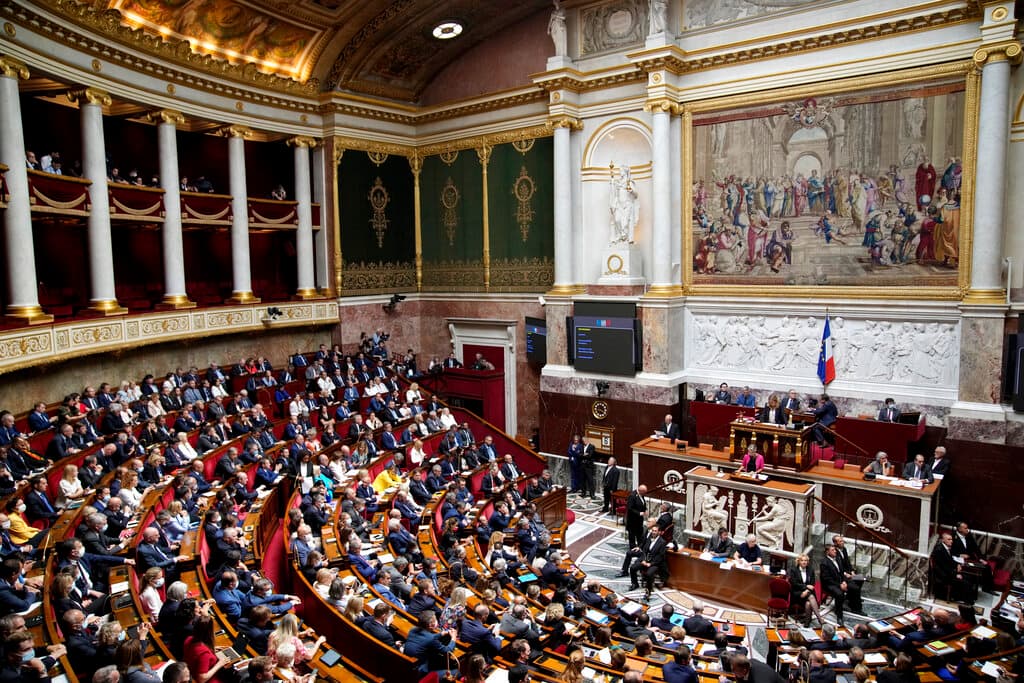Is President Macron a ‘Lame Duck’ — or Is He a ‘Zombie President’?
If you’re not wondering, you haven’t been reading the French press.

Should Emmanuel Macron be described as a lame duck, seven months after being reelected, or even, as the right-of-center magazine Le Point had it last week, as the “Zombie president of France”? Peut-être. What is at stake is both constitutional and personal issues.
The Fifth Republic, France’s current political system, was established in 1958 and 1962 as a decidedly presidential regime, where the executive — the popularly-elected president and his cabinet, led by the prime minister — wields much more power than the Legislative. However, several constitutional revisions have modified the original script over the past 22 years.
First, there was the 2000 revision initiated by President Chirac, a conservative, and Prime Minister Lionel Jospin, a socialist. An exercise in gratuitous demagogy, it shortened the presidential term to a more “democratic” five years from seven years.
At the time, nobody in France, excepting a narrow group of politicians, political scientists, and spin doctors, really cared about such limitations: the seven-year term — septennat in French — was a hallowed and innocuous republican tradition, going back to 1873.
Even under a presidential Republic, it had not prevented the nation from forcing General de Gaulle’s resignation in 1969, nor power-sharing between the Right and the Left to take place on three separate occasions, 1986, 1993, and 1997. When the amendment was submitted to a referendum, only 30 percent of the voters bothered to cast a ballot.
The transition to a five-year term — quinquennat — was, however, to have a far-reaching Serendip effect, since the National Assembly, the more powerful camera in the French parliament, was also to be elected for a five-years term.
With both ballots to be held almost at the same time, the president was no longer seen as being above ordinary politics, but rather as one party boss among others. By the same token, he, rather than a redundant prime minister, was from now on answerable for everything the government did or failed to do.
A second, more sweeping and no less idiotic revision, involved rewording 30 articles in the 1958 constitution and adding nine new ones. It was engineered by a conservative president, Nicolas Sarkozy, in 2008. To avoid another humiliatingly low level of popular voting, it was not submitted to a referendum for approval but rather to the Congress: a joint session of the National Assembly and the Senate.
For no other reason, again, than political communication, it deprived the executive of some of its prerogatives, such as the free use of article 43.9, the French equivalent of an American executive order. Conversely, it strengthened not only the parliament’s powers but even, within the parliament, the powers of the main opposition groups. Under such dispensation, the president can still make do, as long as he is supported by the National Assembly.
Things get bad, however, if the president is not supported by the assembly, as may be the case for Monsieur Macron now, since in June his coalition came short of a majority, with 245 seats out of 577. The situation gets even worse when compounded by another revisionist provision passed in 2008, the presidency’s limitation to two terms.
No matter what, Mr. Macron must leave in 2027, when he will turn 50. Many of his closest political friends have already started to think of themselves as political heirs, something that brings about divisiveness and distrust in the administration.
Mr. Macron, who exuded youth, energy, and luck when he was elected for the first time in 2017, now looks bitter and exhausted. Still, he can play two trump — no pun intended — cards.
One is to strike a deal with the classic conservatives, known as Les Républicains, who hold 62 seats at the National Assembly and can thus provide him with the much needed absolute majority.
Some 80 percent of the Macronists would support such a move, against 58 percent of Les Républicains. The main point here is whether the new coalition will be openly conservative, including on such issues as family, immigration, or order and law.
For the time being, Macron still insists on his “at the same time” approach, which is supposed to amalgamate conservative and liberal priorities. He certainly irked many Républicain legislators when he nominated a woke, racialist pop singer, Yseult, as France’s “youth ambassador” to a Francophone summit scheduled for 2024.
Or when he let the Macronists submit to the National Assembly a constitutional amendment defining the right to abortion as an infrangible “human right.”
What, then, if Les Républicains elect as chairman next month a die-hard conservative rather than a Macron-compatible figure ? The president would probably have no choice but to play his second trump card: dissolving the Assembly and calling for new elections.
That would be quite a gambit. Dissolution worked well for General de Gaulle and the conservatives in 1968, in the wake of several weeks of student riots and strikes. It led, however, to an electoral disaster for Jacques Chirac in 1997.

